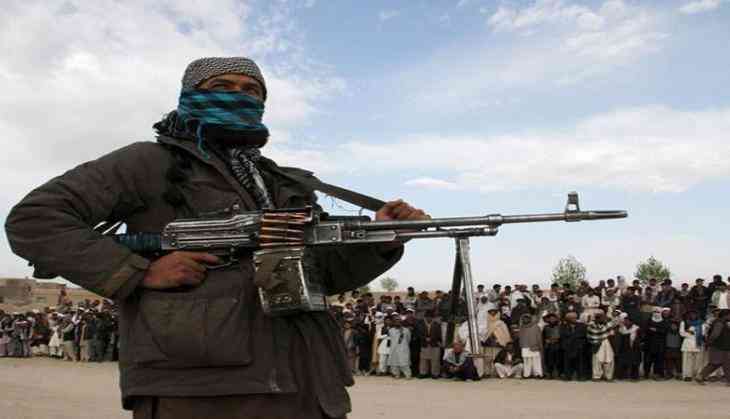
Taliban ideology has neither reformed nor changed in any form, said Fabien Baussart, the President of Center of Political and Foreign Affairs (CPFA), highlighting the recent incidents of targeted murders, assassinations and punishments meted out to women in Afghanistan.
In an opinion piece in Times of Israel, Baussart writes Afghanistan is witnessing one of the most brutal and worst humanitarian crises imposed by the Taliban and it would be so naive of the international community to take the Taliban's words seriously when it comes to peace.
Ever since Kabul fell to the Taliban, several rights experts have raised concerns regarding the safety of women under Taliban-led Afghanistan
Nishank Motwani, deputy director of the Afghanistan Research and Evaluation Unit, a think tank in Kabul, says that "they are exactly how they were when the Taliban was in power in Afghanistan in the 1990s: Women can't go to school. They can't go outside to buy medicine without a male chaperone. They are watched. It's that climate of fear."
He noted that Afghan women feel deeply threatened for their life by the prospect of Taliban gaining national power.
Wazhma Sahel, 22, a military officer who works as a criminal investigator in the Kabul police department mentioned that in addition to regular threats she receives on social media, the Taliban had started sending written death threats to the office where she works.
She says, that, "if the Taliban returns to power, I along with other women who work in the government's military and security forces will either be stoned to death or executed in a public space in front of a crowd."
Ravina Shamdasani, spokesperson, Office of the High Commissioner for Human Rights (OHCHR) during a press briefing stated that, "When you take away a woman's freedom of movement you are limiting her ability to be of use to her family. Even when you've got family members who have been critically injured in the course of the conflict, being able to take a wounded child to a hospital without a male escort is not possible, this is unacceptable."
"Since the year 2020 began, the Taliban have targeted women professionals at an alarming rate," writes Baussart.
Police officer Fatima Rajabi, who worked in a special anti-narcotics division, died at the age of 23 in July 2020 after the Taliban stopped the vehicle she was travelling home in and took her captive.
Her remains, which had gunshot wounds and signs of torture, were sent to her family. In May 2020, Maryam Noorzad, a midwife, was murdered in a Kabul hospital after three Taliban gunmen attacked the maternity ward.
Noorzad refused to leave her patient, who was in labour. So, she, her patient and the newborn baby were all killed in the delivery suite. In June 2020, Fatima Natasha Khalil, an official with the Afghanistan Independent Human Rights Commission died at the age of 24. She was killed by a roadside explosive device planted by the Taliban in Kabul on her way to her office.
"In view of the recent incidents of targeted murders, assassinations and punishments meted out to women in public spaces, it is amply clear that the Taliban ideology has neither reformed nor changed in any form. Against this background, it would only be naive of the international community to take the Taliban's words seriously when it comes to peace, more so in the case of women and young girls," he writes.
(ANI)
Also Read: Afghan crisis: Hundreds protest against Taliban, Pakistan in Greece


